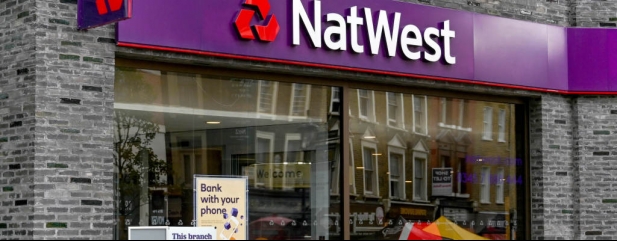Archived article
Please note that tax, investment, pension and ISA rules can change and the information and any views contained in this article may now be inaccurate.
Rising costs may cloud UK banks’ results

With the FTSE 350 banks index having doubled in price since hitting a low in September 2020 on value hunting in the first instance and the prospect of higher interest rates more recently, the UK’s big four high street banks now need to repay investors’ faith.
Their chance to do that comes this month with the release of their full year results, starting with NatWest (NWG) on 18 February.
NatWest’s shares have almost trebled in price since their September 2020 low as a recovery in the UK economy has allowed it to write back the hefty loan loss provisions it took during the pandemic after the economy suffered its worst slump in decades.
Analysts are expecting the bank to have swung from a pre-tax loss of £351 million in 2020 to a profit of over £4 billion last year, but in addition to the numbers investors will be listening for positive comments on trends in net interest margins and lending growth now that the economy is expanding again. Net interest margins are the difference between what a bank charges on loans and the interest it pays on savings deposits.
Investors will also be expecting a healthy final dividend for NatWest after 2020’s famine with the analyst consensus looking for a 5.7p per share ordinary payment topped up with a 0.5p per share special payment, taking the full year return to 9.2p.
NatWest announced a £750 million repurchase scheme with its first half 2021 results: the hope is that rises to £2 billion or more going forward.
Asia-focused HSBC (HSBA) announces its results on 22 February, followed a day later by retail and investment bank Barclays (BARC), and Lloyds (LLOY) on 24 February.

While UK interest rates and their effect on net interest margins, and by extension return on equity, will be a big focus for investors, most of HSBC’s profit comes from its Asian business and in particular its wealth management division.
A slowdown in economic growth in China due to the government’s zero-tolerance approach to the Omicron variant, and a slowdown in the property market where many wealthy Chinese have their money, means concerns could linger about the bank’s core business.
For Barclays, which has the biggest investment banking business of any of the UK banks, attention may be split between the margin on its retail operations and the size of profits generated from the capital markets.
News about staff salaries and bonuses could sour the reaction to progress on the UK retail side as the firm tries to hang onto its dealmakers and stop them defecting to Wall Street rivals.
Important information:
These articles are provided by Shares magazine which is published by AJ Bell Media, a part of AJ Bell. Shares is not written by AJ Bell.
Shares is provided for your general information and use and is not a personal recommendation to invest. It is not intended to be relied upon by you in making or not making any investment decisions. The investments referred to in these articles will not be suitable for all investors. If in doubt please seek appropriate independent financial advice.
Investors acting on the information in these articles do so at their own risk and AJ Bell Media and its staff do not accept liability for losses suffered by investors as a result of their investment decisions.

 magazine
magazine








